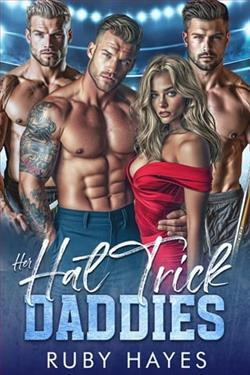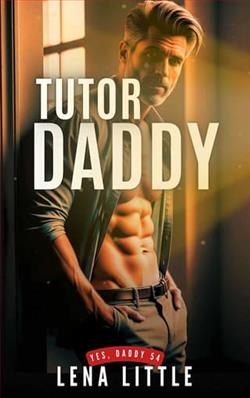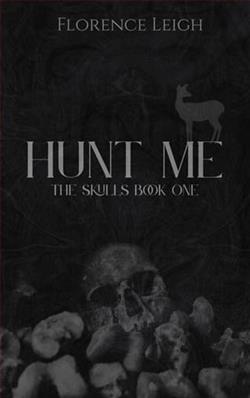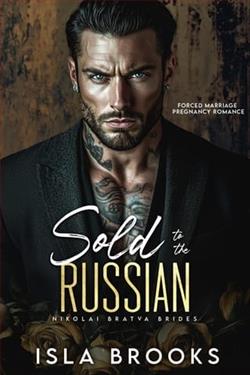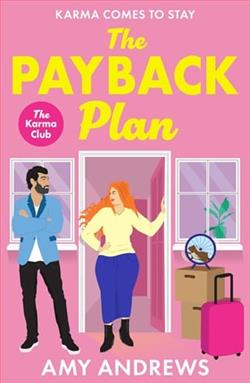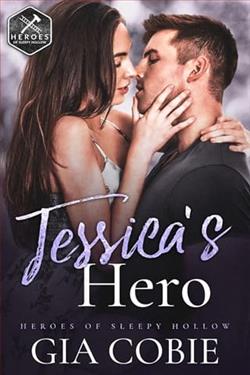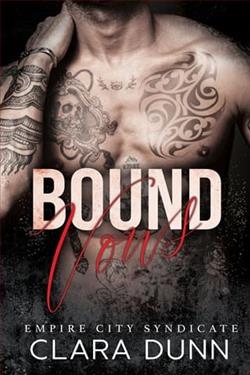Page 29 of Stone
“Those are damn good sausages,” she said. “I can see why you make the trade. Now, back to San Francisco. The protest starts at one. We can drive to the city, scope out the area, attend the event, maybe meet Anna Palmer, then head home.”
“You have it all planned out.” A statement, not a question.
“I do, thank you very much. Of course, we may have to adapt depending on what we find.”
He inclined his head, then let out a tiny huff. “Fine,” he said. “Let’s stop at the clubhouse first, check in with the others, then we can head out. So long as we leave by nine, we should make it in plenty of time.”
15
“Quite a crowd,” Juliana said, turning her head to take it all in.
Stone was doing the same, although his eyes were trained to spot danger. He didn’t care about the men in rainbow pants or the women pushing strollers or the small contingent of Black men representing a local motorcycle club. Well, to be fair, he cared whether they posed a danger, but they didn’t otherwise catch his notice.
“Look at that little boy,” Juliana said with a smile.
He glanced over to see a small crowd gathered around a boy of about four or five handling a half-sized basketball with impressive skill. A woman Stone thought might be the boy’s mom kept watch with an indulgent smile on her face.
“What were your parents like?” he asked, picturing Juliana as a little girl. It wasn’t hard to imagine her with blond pigtails, a bright smile, and an infectious laugh.
“I don’t really remember. They died when I was seven,” she said. His attention jerked to her. She continued scanning the crowd, looking for Anna Palmer.
“Seven?” he asked. That seemed like something he should have known. Granted, they hadn’t spent much time together, and most of that time they’d been focused on thesituation. But how could he not have known she was an orphan?
She inclined her head but didn’t meet his eyes. “Killed by a drunk driver. They were on their way home from a concert. My dad was a professor and my mom a violinist in a symphony in DC, where we lived. Is that Anna?”
He stared at her before dragging his gaze to where she not-so-subtly pointed. They’d studied pictures of the well-respected Bay Area reporter. The woman Juliana indicated had the same long gray hair, but the build didn’t look quite right. And when she turned around it was clearly not her. In fact “her” wasn’t a “her.”
“I guess not,” Juliana said.
“What happened after they died? Did you live with family? Do you not want to talk about it?”
She glanced at him, shrugged, then turned back to her perusal of the crowd. “My mom’s sister and her husband took me in. I lived with them until I went to boarding school in ninth grade.”
He almost commented that it was good that family had taken her in but stopped himself. He knew more than most thatfamilywasn’t always a salve. And based on her reactions to him—her surprise at his help, her confusion about his care of her minor injury—he suspected her aunt and uncle hadn’t been the loving home she’d deserved.
“You said you don’t have any siblings, but any cousins?” he asked.
She nodded. “One. Elizabeth. You?”
“A brother. Older.”
That snagged her attention and she swung her gaze to him. “Are you close?”
“It’s complicated, but yes.”
Her eyes searched his. “Complicated?”
It was his turn to look away. “He’s five years older than me. He…protected me from a lot growing up. But as soon as I enlisted, he disappeared. I didn’t understand it at the time, but enough years have passed that I get it now. Of course, it’s all supposition since we never actually talk about it.”
“What do you suppose?”
He took a deep breath. “Our parents were pimps and drug dealers. He took on the role of parent far younger than he should have. For as long as I can remember, he tried to stand between me and them. He wasn’t always successful, but he often was. It was a lot for a kid to carry. A lot of responsibility that he shouldn’t have had. As soon as I was safe, as soon as I could stand on my own, he took off, his life finally his own.” He paused, wondering why he was talking about this in the middle of a brewing protest. Although oddly, it felt like the right time.
“If I need him, or he needs me, there’s no question we’d be there for the other in a heartbeat. But day to day? We’re not really a part of each other’s lives,” he said.
“Where’d he go? What does he do? Does he live nearby?”
He smiled. Juliana’s curiosity knew no bounds. And for the first time in his adult life, he liked having someone ask. Like having someone—Juliana—interested.









